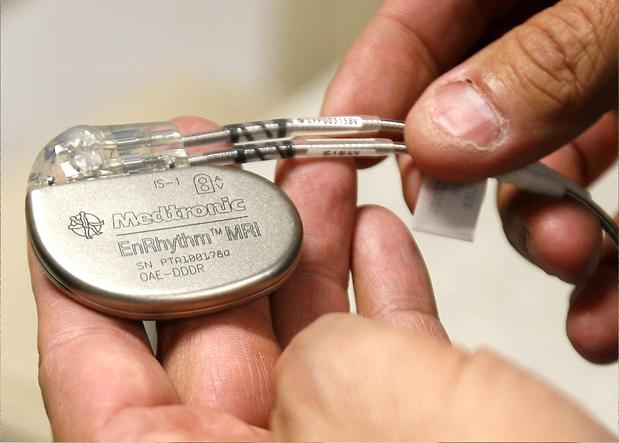Ever wonder if there is an electromechanical device installed inside your body? Yes surely there is a marvel called heart whose beating controls the activities of our body system. First off, the question about how is the pacemaker related to our heart arises. And if somehow it is related then what function does it engage in; how is it operated; why is it needed; how does it help the heart and then in return improves our life quality; what are its limitations and so many questions flood our head. Today, I intend to answer all these questions in the terms easier enough to be grasped by each non-medical person who is curious to know.
Pacemaker’s relation to the heart:
Initially you need to know how actually does our heart beat (contractions and relaxation)- the chemical impulses initiate the contraction of cardiac muscle in humans and these chemical impulses are created by the pacemaker cells that are naturally present inside the walls of right atrium (which is one of the four chambers of the heart). The generation of the rhythmic impulses and the heartbeat is entirely under the control of pacemaker.
What causes the failure or dysfunction of the natural Pacemaker?
Without going deeper into the anatomical details of the heart, I will try to elaborate the need of an artificial Pacemaker. If the heart rate does not stay normal (higher or lower or non-uniform) and if the chemical impulses are not fired-off rhythmically (condition called Arrhythmias) then an Artificial Pacemaker is needed to take over the activities formerly carried out by the natural cardiac pacemaker.
Artificial Pacemaker’s Functionality and its effects on life and health:
The Artificial Pacemaker is implanted inside our body (preferably in the left shoulder area) through a 30-60 min surgical treatment, and its advanced externally programmable abilities enable the cardiac surgeons to set the beating pace that an individual’s heart needs. Through a set of electrodes it gets connected to the heart, supported by a lithium battery that lasts for 8-10 years.
One may inquire the limitation in our daily-life activeness after having the artificial one implanted. However, it improves the quality of life for heart patients and there are just a few cautions that are needed, like a person shouldn’t involve in heavy athletic exercises, shouldn’t be around any device generating strong electromagnetic radiations.
Dr. Kirsten E. Fleischmann, M.D., M.P.H, carried out an extensive research on patients less than 75 years of age who had undergone a pacemaker implantation surgery. Her study reveals the high improvement in heart rate and consequently in the quality of life. Over 2000 patients’ post-surgery life activities were observed to show the remarkable improvement in health.
In the June 2007 issue of the “Journal of the American Medical Association,” Dr. Finlay A. McAlister marked that “Pacemakers reduced hospitalizations by 37 percent and reduced mortality, or death rates, by 22 percent.”
Misconceptions about having a Pacemaker:
People who have undergone the surgery and are living their life with a Pacemaker often get puzzled-up with a multitude of questions resembling “I wouldn’t be able to live a longer with this device inside”, “I cannot operate a microwave oven or use my cell phone”, “My heart would stop, leading me to death if my Pacemaker stops working” and so on…Yes, with earlier Pacemakers, these questions were somewhat valid to a certain extent but with the deepest of researches made and the noteworthy advances in medical science, have made possible several activities including the use of microwave oven and other devices like cell phone; these devices no longer interfere with the functionality of the Pacemaker. Moreover, to answer the first question, the research done is supportive enough to make a person recognize the improved life and health benefits.
The post-surgical patients need to get checked every 3-4 months to have monitored the working of Pacemaker. This device is designed so sophisticatedly that it indicates when it needs to be changed so a patient does not need to worry about its abrupt stopping.
Nevertheless, the myths should be resolved by learning the truth and fears to be abolished by knowing the quality of life that an artificial pacemaker gives. Trade-offs are not superior than the health you enjoy having an artificial Pacemaker inside of you.
This Article is Written by “Ghalia Akram” Senior Author At Envirocivil.com
Originally published by www.envirocivil.com




